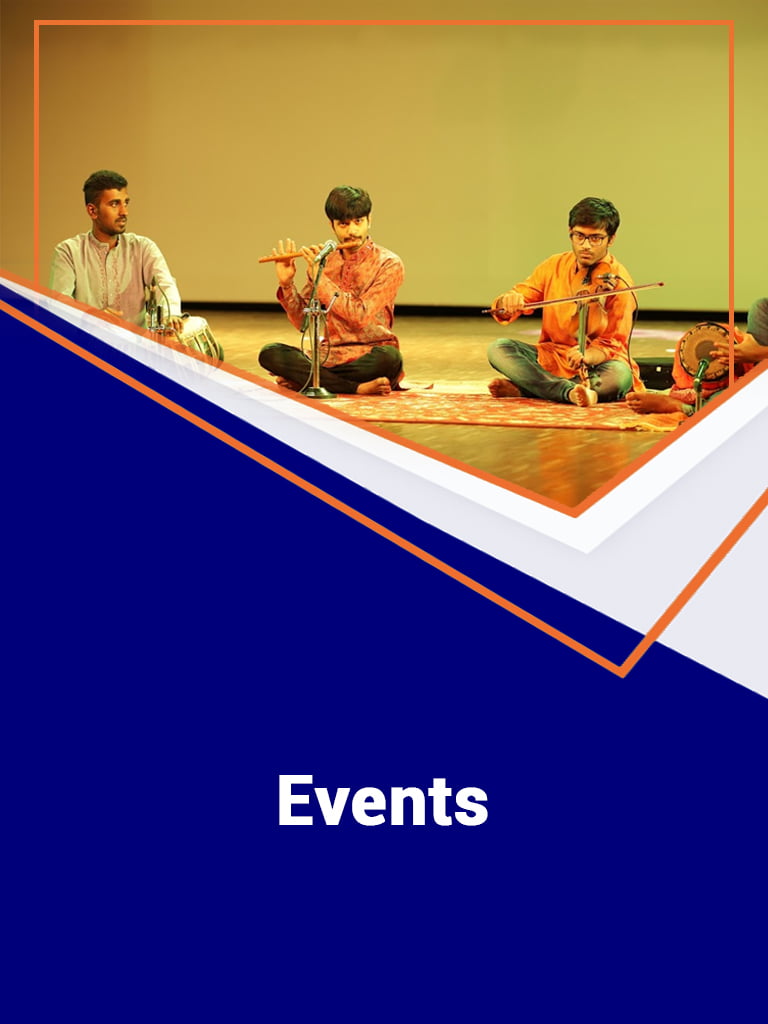
Sharavathi Hydro power plant
December 16, 2022 @ 10:30 AM - 12:30 PM
Bellary Thermal Power plant and Tungabadra Dam and Munirabad Mini-Hydro-electric power plant
December 1, 2022 @ 10:30 AM - December 3, 2022 @ 12:30 PM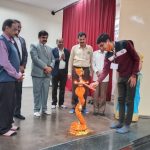
All India Workshop
November 25, 2022 @ 10:30 AM - November 26, 2022 @ 12:30 PM
Hot Line Training Centre, Bengaluru
August 23, 2022 @ 10:30 AM - 12:30 PM
Technical Talk
August 17, 2022 @ 10:30 AM - 12:30 PM
Orb Energy, Bengaluru
May 28, 2022 @ 10:30 AM - 12:30 PM
EXCON 2022
May 20, 2022 @ 10:30 AM - 12:30 PM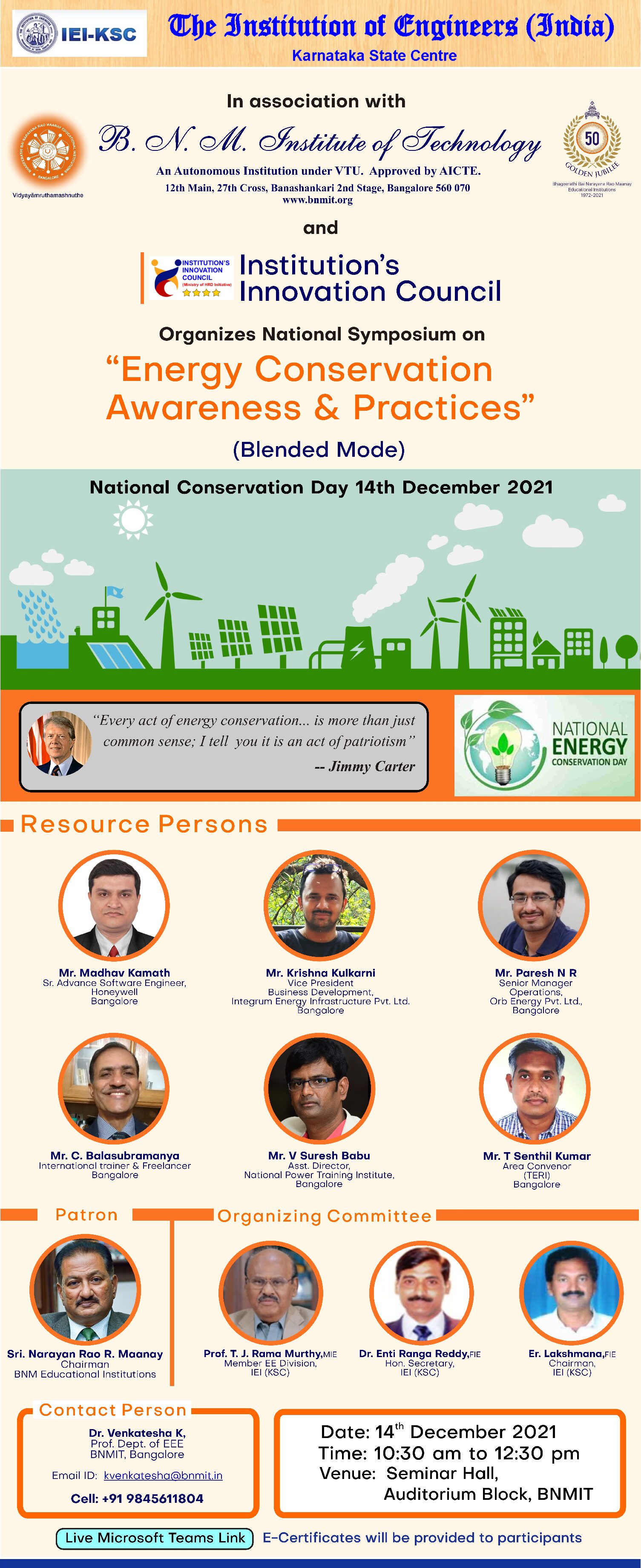
National Symposium on “Energy Conservation Awareness & Practices”
December 14, 2021 @ 10:30 AM - 12:30 PM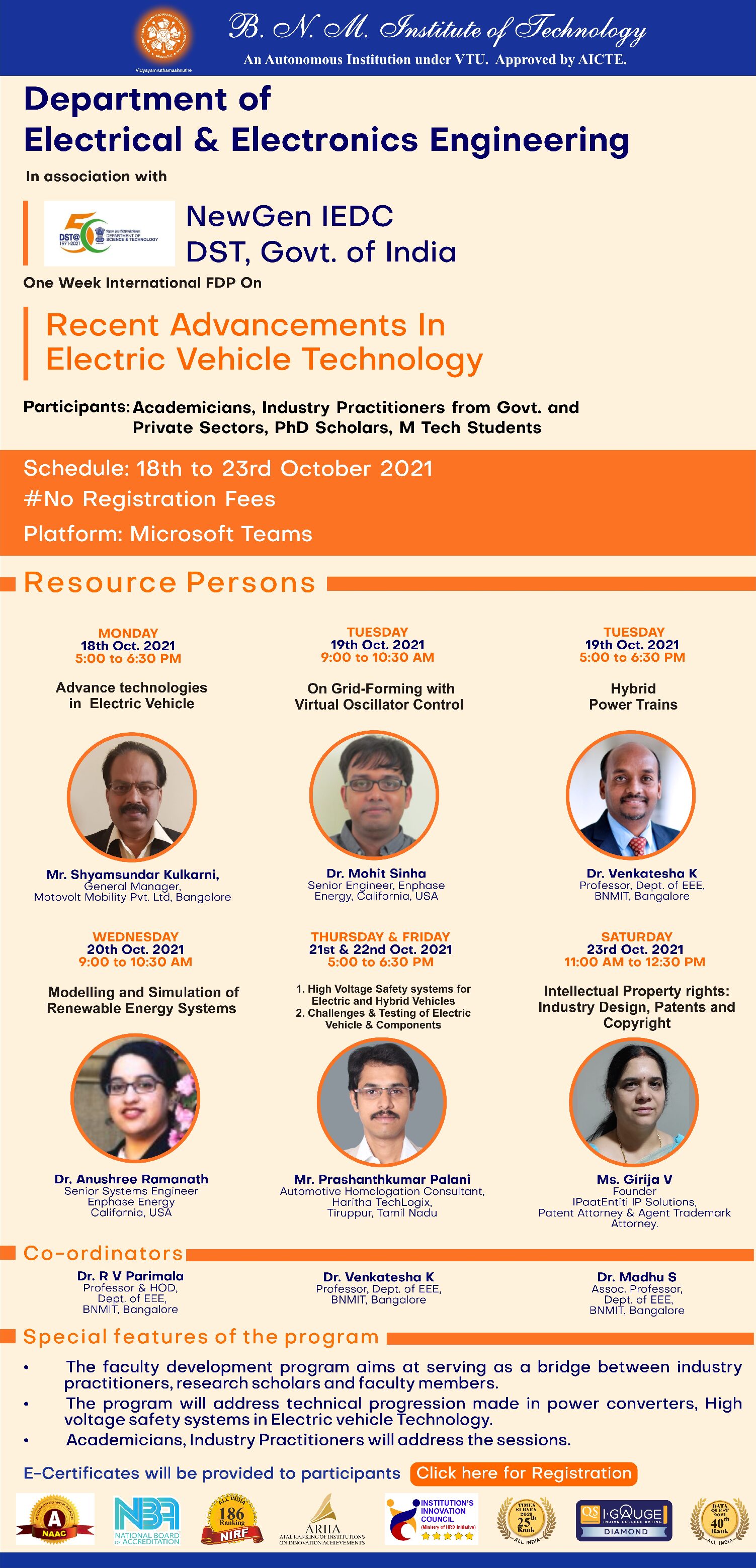
One Week International FDP on Recent Advancements in Electric Vehicle Technology
October 18, 2021 @ 5:00 PM - October 23, 2021 @ 12:30 PM
Faculty Development Programme on Power and Energy Systems: Technical Progressions and Research Opportunities
July 19, 2021 @ 10:30 AM - July 24, 2021 @ 4:30 PM
Research & Advancement in Electric Vehicle Technology
June 29, 2021 @ 5:30 PM - June 30, 2021 @ 7:30 PM
Technical Webinar
May 21, 2021 @ 10:00 AM - 7:00 PM
Two Days’ Technical Webinar
November 12, 2020 - November 13, 2020
Report on “E-Quiz Competition (Know the Unknown)”
November 11, 2020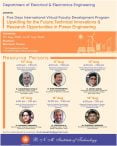
Upskilling for the future: Technical Innovations & Research Opportunities in Power Engineering
August 10, 2020 - August 14, 2020
SDP Report on “Design & prototype of power electronic converters and controllers using Multisim software”
July 10, 2020 - August 20, 2020
Two days Virtual Webinar on ‘Intelligent Dynamic Electrical Systems and its Applications’
June 26, 2020 - June 27, 2020
SMART INDIA INTERNAL HACKATHON – 2020
February 5, 2020
Skill Development Program on “MATHEMATICAL MODELLING OF ELCTRICAL SYSTEMS USINGMATLAB AND SIMULINK”
February 3, 2020 - February 12, 2020
One Week Faculty Development Program on ‘AI applications in Electric Power Systems and Locomotive’
January 20, 2020 - January 24, 2020
ISTE STUDENTS CHAPTER TECHNICAL TALK : ‘Basics of Electrical Engineering Design’
November 2, 2019
BNMIT ALUMNI SERIES -TECHNICAL TALK: ‘Power Systems Harmonics’
October 26, 2019
ISTE STUDENT’S CHAPTER -TECHNICAL TALK : ‘DC-DC Converters’ and ‘Basics of UPS’
October 15, 2019
INDUSTRY VISIT PHOTO GALLERY
October 15, 2019
Workshop on ‘Internet of Things using Raspberry Pi’
October 11, 2019 - October 12, 2019
INDUSTRY VISIT PHOTO GALLERY
September 24, 2019
One Week Faculty Development Program on ‘Application of Computational Intelligence in Engineering
June 24, 2019 - June 29, 2019
FCD FELICITATION FUNCTION &ISTE STUDENT CHAPTER TECHNICAL TALK ‘Recent Developments in Industrial & Process Automation’
April 29, 2019
INDUSTRY VISIT PHOTO GALLERY
February 17, 2019 - February 19, 2019
INDUSTRY VISIT PHOTO GALLERY
November 13, 2018
ISTE STUDENT CHAPTER TECHNICAL TALK ‘A Review on Renewable & Non-renewable sources of energy’
October 26, 2018
INDUSTRY VISIT PHOTO GALLERY
September 28, 2018 - October 2, 2018
Four day Workshop on ‘Design & Development of Embedded systems for Real Life Application’
July 10, 2018 - July 13, 2018
Invited Talks/Workshops (Academic Year 2017-18)
April 16, 2018
ISTE STUDENT CHAPTER TECHNICAL TALK ‘Emerging Trends in Power Transmission’
April 16, 2018
Two Day Workshop on ‘A to Z Transformer Design’
February 17, 2018 - February 18, 2018
ISTE STUDENT CHAPTER and ABEEE Technical Talk – ‘Career Opportunities for Electrical Engineering’
October 31, 2017 - December 31, 2017
SDP Report on “Design & prototype of power electronic converters and controllers using Multisim software”
Date: 29th July 2020 to 18th August 2020
The Department of Electrical & Electronics Engineering had organized a Virtual Skill Development Program (SDP) on “Design & prototype of power electronic converters and controllers using Multisim software”. SDP was aimed at providing hands-on skills to the 2nd year students in the area of design, simulation and prototype of Electrical and Electronic circuits specially focusing on analog & digital circuits, power converters and controllers using multisim software. The SDP Program was held on Microsoft teams platform from 29th July 2020 to 18th August 2020 (50 Hrs).The sessions focussed on introducing the prominent features of Multisim software such as Introduction to virtual components and libraries, basics of circuit building, Simulation types, settings, analysis of circuits, Steps involved in building PCB layout and so on. All these features were demonstrated by considering examples circuits. The students downloaded evaluation version of Multisim software, performed simulation and analysis of circuits during the session. The discussions held during the sessions helped the students to understand the design in a better way. Some of the circuits simulated during the sessions were Series-parallel RLC circuits, Rectifiers, RC coupled amplifier, Colpitts oscillator, operational amplifier circuits, Full adder, Digital Counters, BCD to segmental converters, Voltage regulators, Buck-Boost converters, PI controllers using op-amps, H-bridge motor Driver circuits and so on. Few application based circuits such as flashing of LEDs, square wave generator, Motor speed control, H-Bridge driver circuit for DC motor, stop watch circuit, automatic headlight control using LDR, Battery level indicator circuits were also simulated and outputs were shown during sessions.
Students were also given an opportunity to take-up mini-projects and demonstrate the results. The titles of few mini-projects completed by students are
- Number Guessing Game by Adithya Ramesh Srinivasa
- Phase Controlled Rectifier using SCR by Pavithra S
- 555 times based Over- Current Detector by Ruchitha S U
- Door Alarm using Hall Effect Sensor by Aishwarya G P
- Infrared buzzer alarm circuit by Varsha Gowda
- Simulation of Traffic light control by S Sai Sharaj.
The SDP program was successful in training the students to acquire the knowledge on circuit simulation tools and have better understanding in the area of Design, simulation and PCB prototyping Concepts of Electrical and Electronics circuits. The response of the program was very encouraging.
Skill Development Program on “MATHEMATICAL MODELLING OF ELCTRICAL SYSTEMS USINGMATLAB AND SIMULINK”
Date: 3rd to 12th February 2020
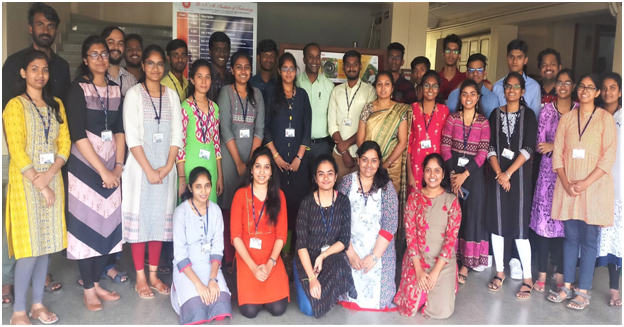
The Department has organized a skill development program on “MATHEMATICAL MODELLING OF ELCTRICAL SYSTEMS USING MATLAB AND SIMULINK” in association with M/s Agimus Technologies Pvt Ltd. SDP was aimed at providing hands on skill to the students in the area of mathematical computation of electrical systems, Machine learning and Deep Learning. The SDP program was completely a hands-on session on MATLAB held during 3rd to 12th February 2020. The SDP program was successful in training the students to acquire the practical knowledge, and also had better understanding of the industrial practices in the area of Design Concepts of Electrical Engineering using Modeling Physical Systems with Sim-scape, Machine learning and deep learning. The response of the program was very encouraging.
Skill Develop Program on “Industrial and Process Automation using PLC, SCADA and HMI”
Date : 25th – 30th July 2019

The Department has organized a skill development program on “Industrial and Process Automation using PLC, SCADA and HMI” in association with M/s Venjay Institute of Automation. SDP was aimed at providing hands on skill to the students in the area of PLC, HMI, SCADA and animation screen development.
Title of the Programme: Two Days’ Technical Webinar
27/06/2020 & 27/06/2020
Participants: Members of ‘Institution of Engineers India Students’ Chapter’, Dept. of EEE, BNMIT.
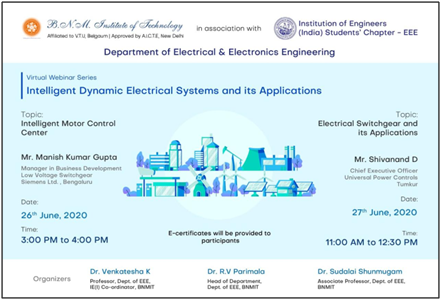
Two days Virtual Webinar on “Intelligent Dynamic Electrical Systems and its Applications”
Description: A two-day webinar on ‘Intelligent Dynamic Electrical Systems and its Applications’ was organized by the Department of EEE under Institution of Engineers India Students’ Chapter, BNMIT on 26/06/2020 & 27/06/2020. This workshop was an opportunity for the pre-final year and final year students to enrich their knowledge and skills in developing various engineering solutions.
The resource person for day one was Mr. Manish Kumar Gupta, Manager – Business Development, Low Voltage Switchgear, Siemens Limited, Bengaluru. He shared information about Low Voltage System design, Low Voltage Switchgear and Switchboard Assemblies, Intelligent Motor Control Center (MCC), Power Control Center and communication protocols used in Industries.
The topic for the second day webinar was “Electrical Switchgear and its applications”. The resource person was Mr. Shivanand D V, CEO, Universal Power Controllers, Sathyamangala Industrial Area, Tumkur-04, India. The major topics covered were types of cable & it’s specifications, Three phase Industrial loads, Electrical power specifications of various countries, working principle of water treatment plants, Miniature circuit breakers (MCB), Moulded case circuit breaker (MCCB), Vacuum Circuit Breakers (VCB), Sulfur Hexafluoride Breakers (SF6), Earth Leakage Circuit Breaker (ELCB), Residual Current Circuit Breaker (RCCB), various parts of panel boards and high voltage switch gear mechanism.
The participants were able to gain knowledge of Motor control & protection systems and high voltage switch gear protection systems. The two days’ webinar was quite useful for the participants to do better projects in future endeavors in the field of Electrical, Electronics and Control engineering.


